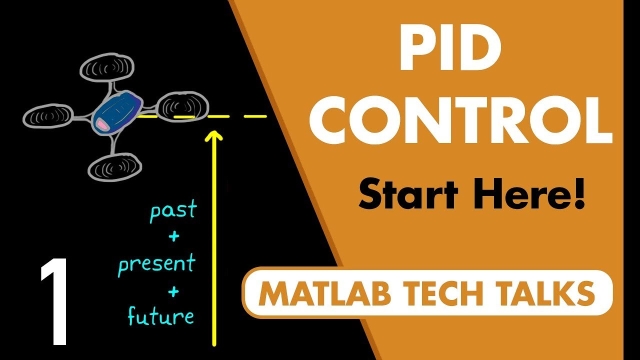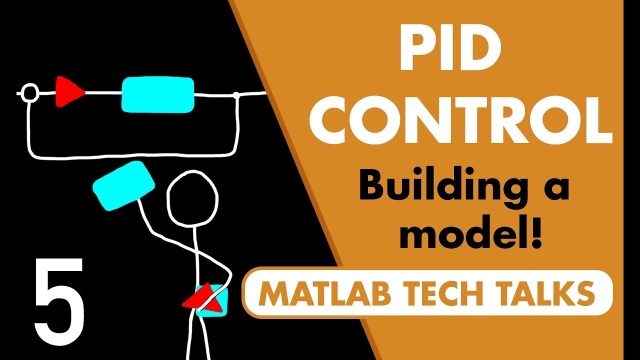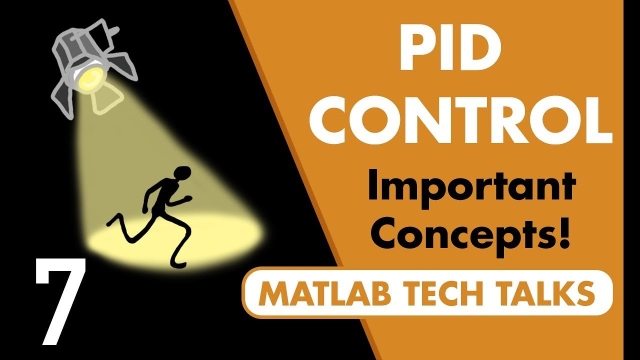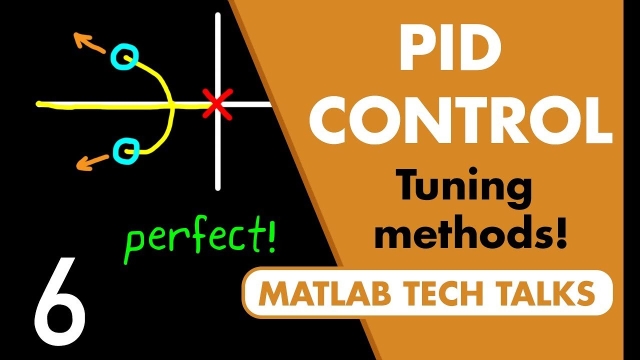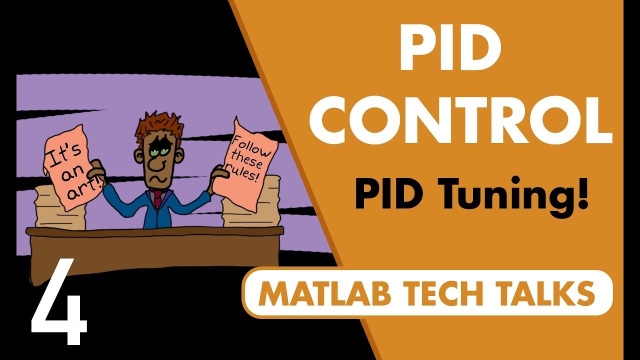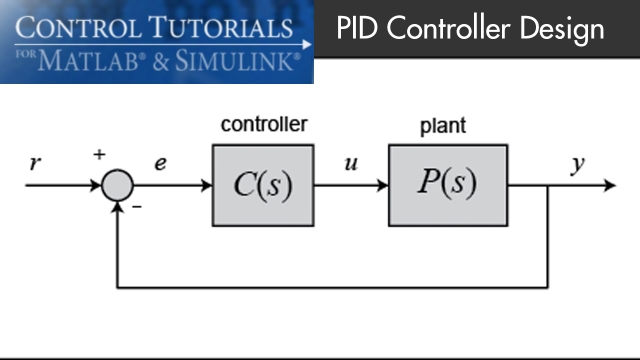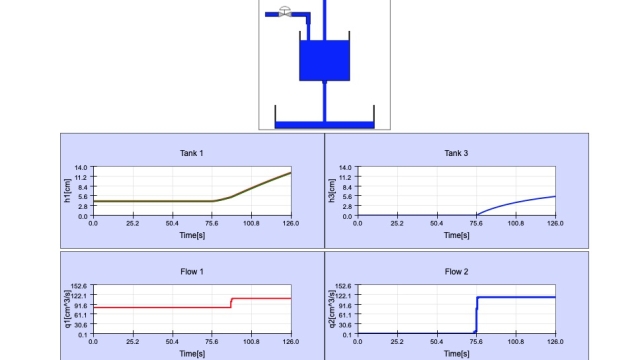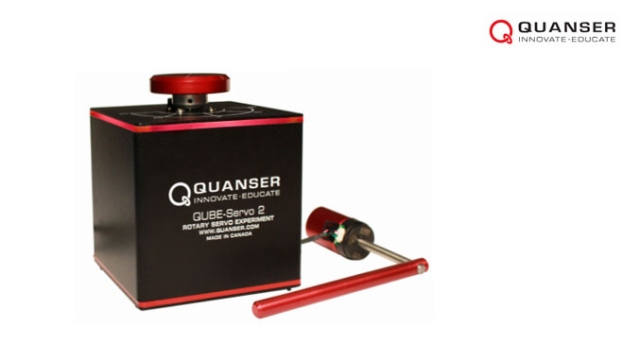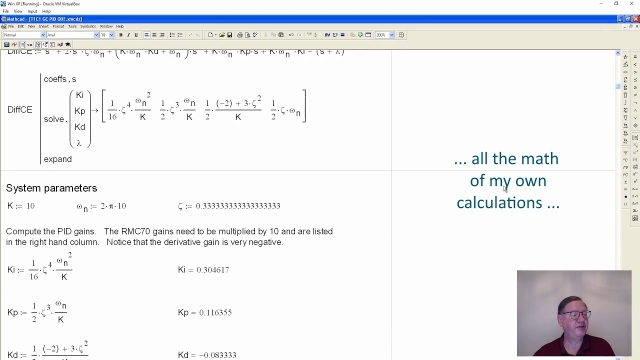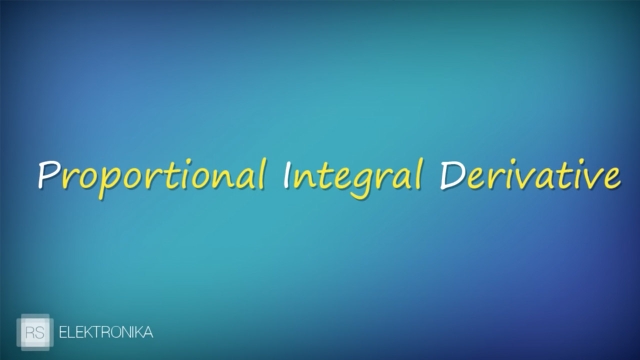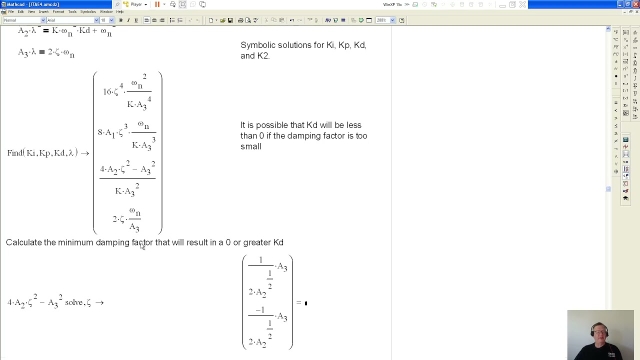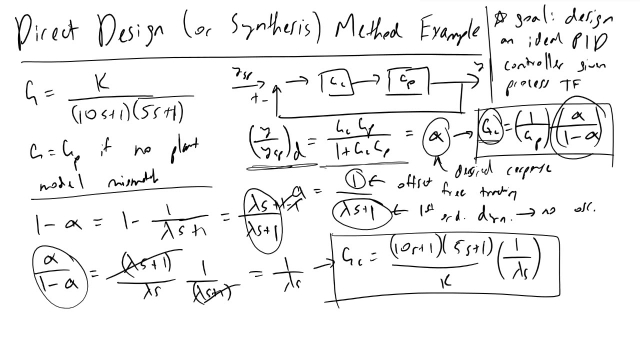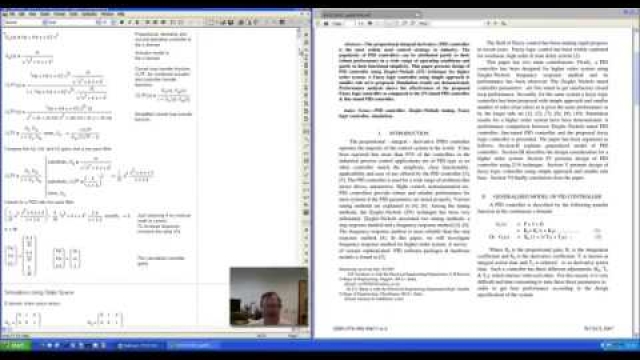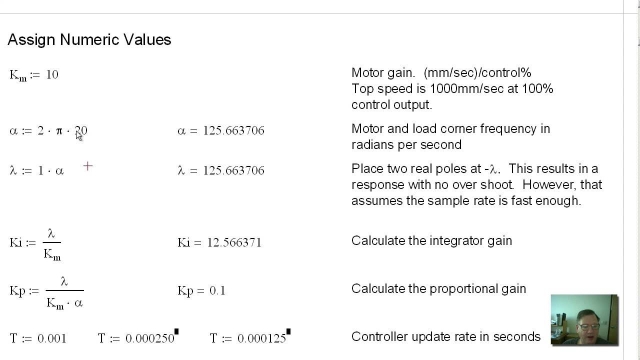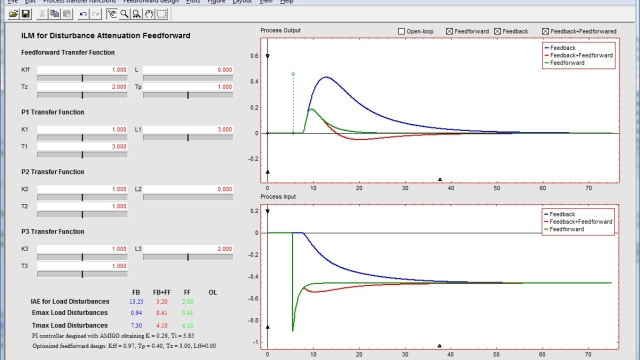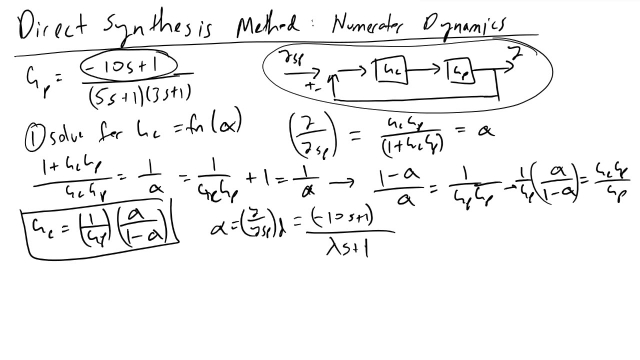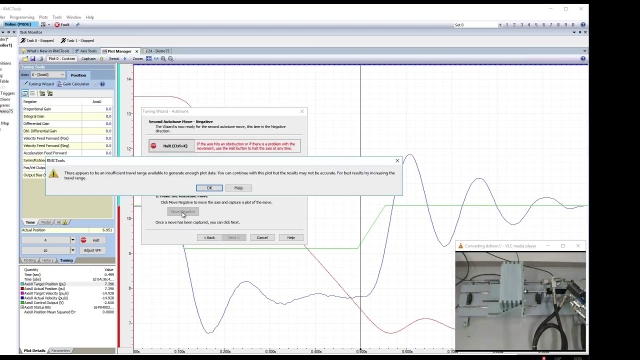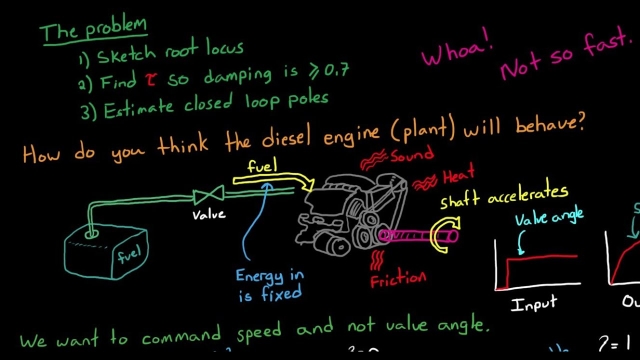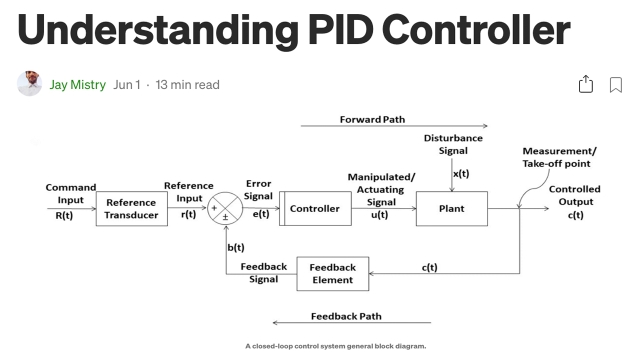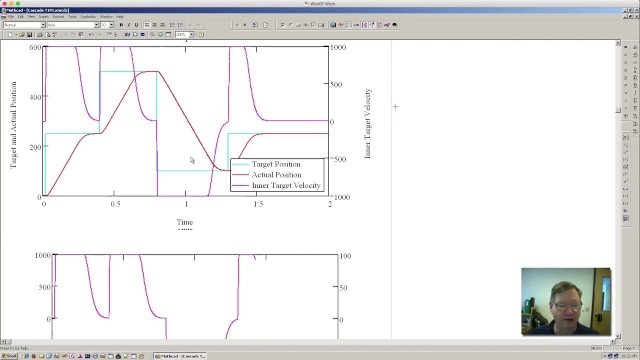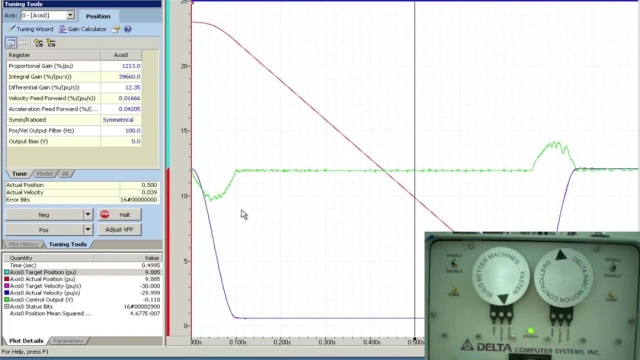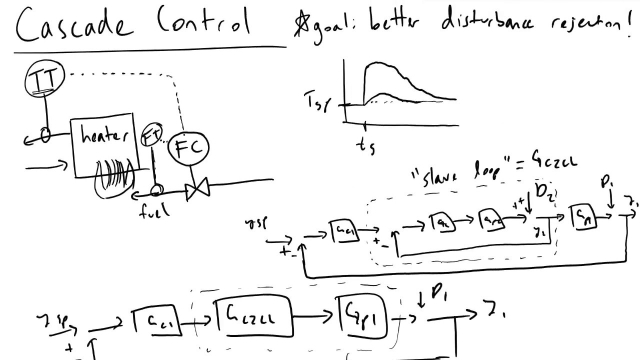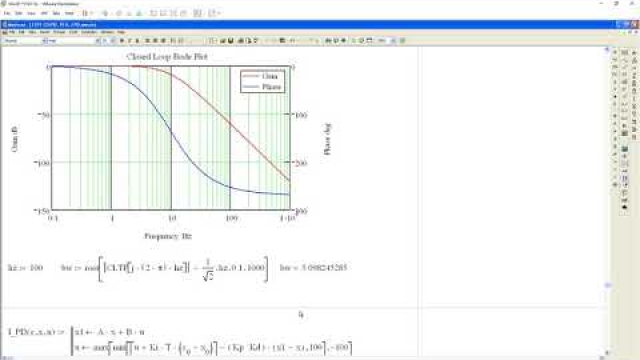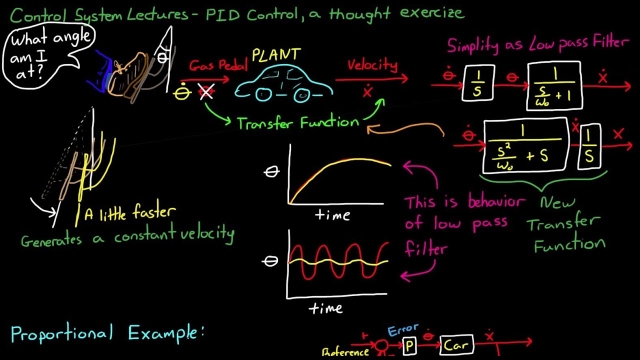A proportional–integral–derivative controller (PID controller or three-term controller) is a control loop mechanism employing feedback that is widely used in industrial control systems and a variety of other applications requiring continuously modulated control. A PID controller continuously calculates an error value, e(t), as the difference between a desired setpoint (SP) and a measured process variable (PV) and applies a correction based on proportional, integral, and derivative terms (denoted P, I, and D respectively), hence the name.
Topic
Proportional-Integral-Derivative (PID) Controller
This topic includes the following resources and journeys:
Type
Experience
Scope
Understanding PID Control, Part 1: What is PID Control?
Chances are you’ve interacted with something that uses a form of this control law, even if you weren’t aware of it. That’s why it is worth learning a bit more about what this control law is...
See MoreUnderstanding PID Control, Part 5: Three Ways to Build a Model
Tuning a PID controller requires that you have a representation of the system you’re trying to control. This could be the physical hardware or a mathematical representation of that hardware...
See MoreUnderstanding PID Control, Part 7: Important PID Concepts
Now that you ’ve gotten an overview of PID tuning techniques, this video moves on to discussing two important concepts in PID control: cascaded loops and discrete systems. Both concepts are...
See MoreUnderstanding PID Control, Part 6: Manual and Automatic Tuning Methods
The previous video showed three different approaches to developing a mathematical model of your physical system. Now that we have this model, we can use it to tune a PID controller that will...
See MoreUnderstanding PID Control, Part 4: A PID Tuning Guide
It can be difficult to navigate all the resources that promise to explain the secrets of PID tuning. Some proclaim that PID tuning is an art that requires finesse and experience, while...
See MoreIntroduction: PID Controller Design
In this tutorial we will introduce a simple, yet versatile, feedback compensator structure: the Proportional-Integral-Derivative (PID) controller. The PID controller is widely employed...
See MoreImproving the Beginner's PID - Introduction
In conjunction with the release of the new Arduino PID Library Brett has released this series of posts that explain his PID code. He start's with what he call's “The Beginner’s PID.” He...
See MoreVirtual Lab for a Two-tanks system
This is a virtual lab for a two-tank system that can be used for modelling and control learing/teaching purposes. Open-loop tests and closed-loop simulatons based on PI control or PI plus...
See MoreQuanser QUBE-Servo 2: Low-cost Teaching Platform for Controls
The Quanser QUBE-Servo 2 is a fully integrated, modular servomotor lab experiment designed for teaching mechatronics and control concepts at the undergraduate level. Ideal for teaching speed...
See MorePeter Ponders PID - Introduction
The purpose of this video is to inform the viewer about what to expect. My videos go much deeper than the typical videos. They are geared for graduate st...
See MoreRegulatory PID (Polish)
W tym odcinku, opisze wam podstawy działania regulatorów PID.
See MorePeter Ponders PID - Integrated Time Absolute Error - 4 Pole example
This video shows how to calculate the coefficients for a 4 pole ITAE and how to use the 4 pole ITAE to calculate closed loop controller gains.
See MoreDirect Design Example for PID Controller
I go through an example problem of how we can use Direct Design (also called Direct Synthesis) to determine the tuning parameters for a PID controller, given...
See MorePeter Ponders PID-Fuzzy Logic vs PID
There are many academic and engineering papers showing how good fuzzy logic control is relative to PID control. Every FL vs PID paper I have seen compares...
See MorePeter Ponders PID - T0P1 Part 4, Misc Topics
This video covers another way to compute symbolic gains, the difference between having the P gain act on the error or just the feedback, extending bandwidt...
See MoreAn interactive feedforward tool for FeedForward Control
This interactive software tool is focused on basic and advanced concepts of feedforward control.
See MoreDirect Synthesis Method Numerator Dynamics Problem
I walk through how to design a PID feedback controller when given a second order process with numerator dynamics, using the Direct Synthesis Method.
See MorePeter Ponders PID, Natural Frequency vs Frequency of Acceleration
This video is intended for servo hydraulic system designers and those that program hydraulic servo systems but it does show how several of the techniques sho...
See MoreStandard HW Problem #1: PID and Root Locus
A walk through of a typical homework problem using the root locus method to tune a PID controller. This is the first in what may be a series of homework style problems I'll cover. This is...
See MoreUnderstanding PID Controller
This blog post begins by walking through the basics and the theoretical part of the PID controllers. The controller is then tested, verified, and analyzed using MATLAB.
See MorePeter Ponders PID - Cascade Control Part1
I cover whether cascade control is necessary. Why there needs to be a feed back for every loop. How to calculate gains. Bode plots and ratio of the inner t...
See MoreAuto Tuning a Small DC Motor in Torque Mode
I was really testing the picture in picture feature of the Screen Flow software I use to make these videos. I knew the auto tuning would work. I kept the v...
See MoreCascade Control Intro
How can we improve the disturbance rejection of our controllers using additional, relevant measurements? Tune in to find out!
See MorePeter Ponders PID - Closed Loop Zeros
This video covers closed loop zeros, what causes zeros and the benefits and drawbacks of closed loop zeros.
See MoreSimple Examples of PID Control
In this video I continue the topic of PID control. We walk through a simple control system and visualize how each of the three paths, P, I, and D, all address specific problems that arise...
See More
